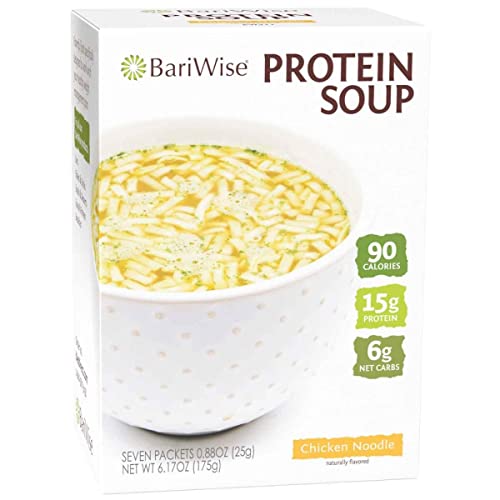The best way to lose weight? A diet filled with protein: Eating fish, eggs and meat every day is easiest way to stay slim.
Published: 22:20 EST, 3 July 2014 | Updated: 07:23 EST, 4 July 2014
Instead of counting calories, those seeking to stay slim are better off enjoying a protein rich diet and eating fish, eggs and meat, scientists have found.
Because of the way the human body prioritises protein over carbohydrates and fat, those with a diet low in protein are likely to gorge on these other food groups to reach the target protein level.
Over the past 60 years the proportion of protein in Western diets has dropped, and researchers suggest this could account for soaring levels of obesity.
Losing weight: Instead of counting calories, those seeking to stay slim are better off enjoying a protein rich diet and eating eggs and meat such as chicken breasts, scientists have found
Weighty issue: Over the past 60 years the proportion of protein in Western diets has dropped, and researchers suggest this could account for soaring levels of obesity
'We can use this information to help manage and prevent obesity, through ensuring that the diets we eat have a sufficient level of protein to satisfy our appetite,' said nutritional ecologist Professor David Raubenheimer, of the University of Sydney.
Professor Raubenheimer is set to present his findings today at the Annual Meeting of the Society for Experimental Biology in Manchester, and says they may explain why high protein diets such as the Atkins Diet can help people to lose weight.
However, he warned such diets could lead to further health issues, as it was more important to achieve the correct nutritional balance.
Best avoided: Professor Raubenheimer says our bodies are not adapted to biscuits, cakes, pizzas and sugary drinks
'We also need to get the balance of fats to carbs right,' he said.
'High protein diets might help us to lose weight, but if they involve other imbalances then other health problems will be introduced.'
As well as being a good source of energy, protein is essential for the healthy growth and repair of body tissues, such as muscles including the heart, internal organs and skin.
ACHIEVING THE RIGHT BALANCE: GOOD SOURCES OF PROTEIN
Turkey and chicken breast
Fish such as tuna and salmon
Low-fat cheese varieties such as cottage cheese or mozzarella
Pork Loin
Lean beef and veal
Tofu
Beans
Eggs
Yoghurt, milk and soy milk
Nuts and seeds
Professor Raubenheimer's team studied baboons living on the edge of human settlements, and found that despite eating different combinations of foods every day the apes achieved a consistent balance where 20 per cent of their energy needs came from protein.
Other studies found that spider monkeys and orang-utans, too, foraged for a balanced diet. But when seasonal availability of some foods prevented them from getting a balanced diet, they prioritised getting the right amount of protein even if this meant eating too much or too little fats and carbohydrates.
The researchers concluded that measuring a food's nutritional content by its calorie count was too simplistic, and that overall achieving the correct nutritional balance of proteins, carbohydrates and fats was more important.
When foods are nutritionally balanced, there is no competition between these appetite systems, and when one nutrient requirement is satisfied, so too are the others.
Many foods however, are unbalanced and have a higher or lower proportion of protein to carbohydrate than is required.
Therefore, to obtain the right amount of protein it may be necessary to over or under-eat fats and carbohydrates.
The researchers are currently investigating how the balance of carbohydrates and fats affects the health of laboratory mice.
Professor Raubenheimer concluded with his own advice for dietary health.
'A simple rule for healthy eating is to avoid processed foods – the closer to real foods the better,' he said.
'Whilst it is clear that humans are generalist feeders, no human population has until recently encountered "ultra-processed foods" – made from industrially extracted sugars, starches and salt.
Our bodies and appetites are not adapted to biscuits, cakes, pizzas and sugary drinks and we eat too much of them at our peril.'
- Those with a diet low in protein likely to gorge on carbohydrates and fat
- Proportion of protein in Western diets has dropped - which could account for obesity levels
- People must eat enough protein to satisfy appetites, scientists say
- Protein is essential for the healthy growth and repair of body tissues
Published: 22:20 EST, 3 July 2014 | Updated: 07:23 EST, 4 July 2014
Instead of counting calories, those seeking to stay slim are better off enjoying a protein rich diet and eating fish, eggs and meat, scientists have found.
Because of the way the human body prioritises protein over carbohydrates and fat, those with a diet low in protein are likely to gorge on these other food groups to reach the target protein level.
Over the past 60 years the proportion of protein in Western diets has dropped, and researchers suggest this could account for soaring levels of obesity.
Losing weight: Instead of counting calories, those seeking to stay slim are better off enjoying a protein rich diet and eating eggs and meat such as chicken breasts, scientists have found
Weighty issue: Over the past 60 years the proportion of protein in Western diets has dropped, and researchers suggest this could account for soaring levels of obesity
'We can use this information to help manage and prevent obesity, through ensuring that the diets we eat have a sufficient level of protein to satisfy our appetite,' said nutritional ecologist Professor David Raubenheimer, of the University of Sydney.
Professor Raubenheimer is set to present his findings today at the Annual Meeting of the Society for Experimental Biology in Manchester, and says they may explain why high protein diets such as the Atkins Diet can help people to lose weight.
However, he warned such diets could lead to further health issues, as it was more important to achieve the correct nutritional balance.
Best avoided: Professor Raubenheimer says our bodies are not adapted to biscuits, cakes, pizzas and sugary drinks
'We also need to get the balance of fats to carbs right,' he said.
'High protein diets might help us to lose weight, but if they involve other imbalances then other health problems will be introduced.'
As well as being a good source of energy, protein is essential for the healthy growth and repair of body tissues, such as muscles including the heart, internal organs and skin.
ACHIEVING THE RIGHT BALANCE: GOOD SOURCES OF PROTEIN
Turkey and chicken breast
Fish such as tuna and salmon
Low-fat cheese varieties such as cottage cheese or mozzarella
Pork Loin
Lean beef and veal
Tofu
Beans
Eggs
Yoghurt, milk and soy milk
Nuts and seeds
Professor Raubenheimer's team studied baboons living on the edge of human settlements, and found that despite eating different combinations of foods every day the apes achieved a consistent balance where 20 per cent of their energy needs came from protein.
Other studies found that spider monkeys and orang-utans, too, foraged for a balanced diet. But when seasonal availability of some foods prevented them from getting a balanced diet, they prioritised getting the right amount of protein even if this meant eating too much or too little fats and carbohydrates.
The researchers concluded that measuring a food's nutritional content by its calorie count was too simplistic, and that overall achieving the correct nutritional balance of proteins, carbohydrates and fats was more important.
When foods are nutritionally balanced, there is no competition between these appetite systems, and when one nutrient requirement is satisfied, so too are the others.
Many foods however, are unbalanced and have a higher or lower proportion of protein to carbohydrate than is required.
Therefore, to obtain the right amount of protein it may be necessary to over or under-eat fats and carbohydrates.
The researchers are currently investigating how the balance of carbohydrates and fats affects the health of laboratory mice.
Professor Raubenheimer concluded with his own advice for dietary health.
'A simple rule for healthy eating is to avoid processed foods – the closer to real foods the better,' he said.
'Whilst it is clear that humans are generalist feeders, no human population has until recently encountered "ultra-processed foods" – made from industrially extracted sugars, starches and salt.
Our bodies and appetites are not adapted to biscuits, cakes, pizzas and sugary drinks and we eat too much of them at our peril.'

































